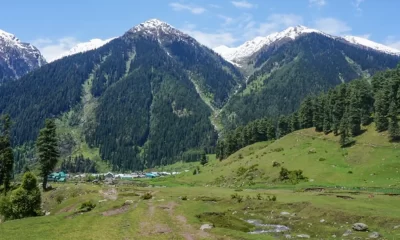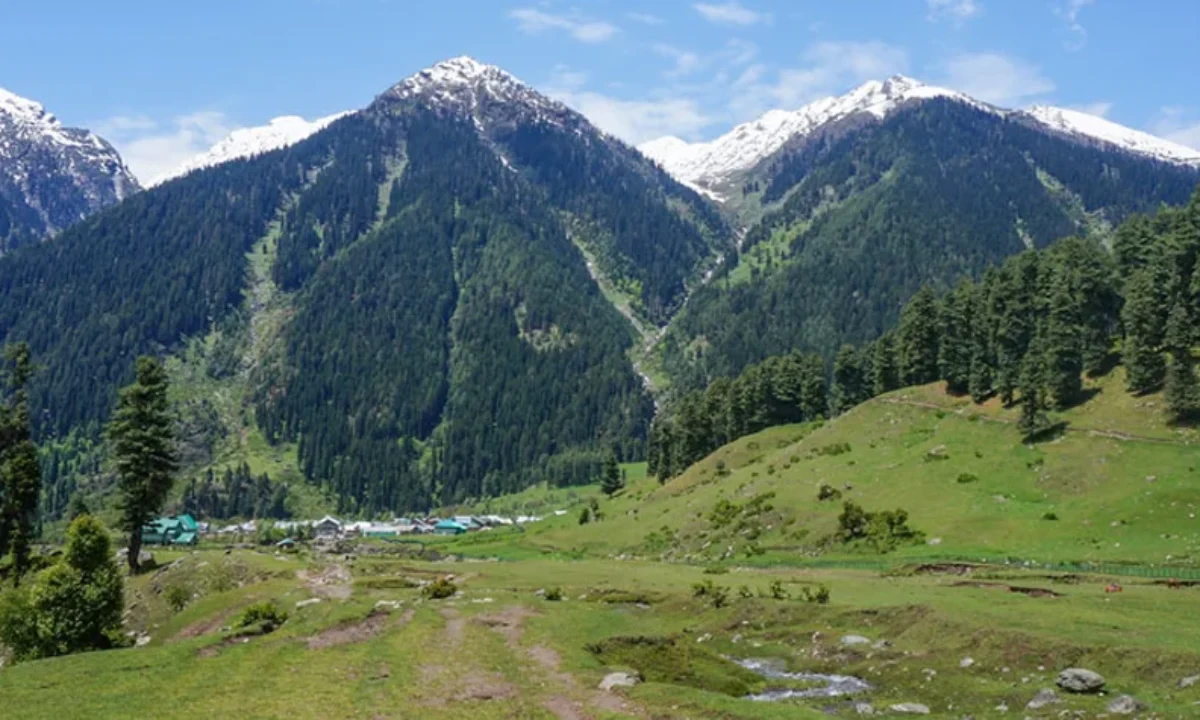In May, our team at Insight set out to explore the beautiful state of Assam, nestled along the majestic Brahmaputra River. What we initially thought would be a quick work assignment soon transformed into a captivating docu-series—one filled with unforgettable memories and a treasure hunt through Assam’s rich cultural and geographical heritage.
Our journey began in Guwahati, with our car packed and ready, and our first stop was the Assam Skill University.
Assam Skill University
Established to meet the evolving skill demands of the state, Assam Skill University offers education in emerging fields such as manufacturing (including Industry 4.0), services, automobiles, IT, healthcare, construction, banking, hospitality, tourism, and agriculture. The university’s Chancellor and Assam’s Chief Minister, Dr. Himanta Biswa Sarma, beautifully captured the essence of its mission:
“The evolution of human history is marked by significant breakthroughs. Skilling the human hand is one such sacred phase of human development. The human hand—with its long, dexterous fingers and opposable thumb—holds the power to create wonders.”
At the university, we were introduced to some of Assam’s most cherished Geographical Indication (GI)-tagged products, including Joha rice, Boka rice, Judima wine, Kaji Nemu, and Karbi Anglong ginger.
Joha Rice
Grown in Assam’s Garo Hills, Joha rice is celebrated for its sweet aroma and taste. Locally known as Mi Jaha, this rice comes in several traditional varieties such as Kola Joha, Boga Joha, Ramphal Joha, and Keteki Joha. Packed with antioxidants, Joha rice has seen rising demand internationally, especially in Vietnam.
Boka Chaul (Magic Rice)
Also known as “Magic Rice,” Boka Chaul is a wonder of simplicity—it requires only a brief soak in water before it’s ready to eat. The term Boka Chaul literally means “soft rice” in Assamese and dates back to the Ahom Dynasty.
(Is it because the Mughals never ate Boka Chaul that they couldn’t defeat the Ahoms? Well, we’ll never know!)
Judima Wine
A traditional rice wine brewed by the Dimasa tribe using steamed glutinous rice and a local herb called Thembra, Judima is sweet and distinct in flavor. Its recipe and cultural significance have been lovingly passed down through generations—a legacy preserved in every goblet.
Kaji Nemu
Declared the state fruit of Assam, the GI-certified Kaji Nemu is deeply embedded in Assamese identity. Its distinctive taste makes it a household essential—so much so that even the mildly bitter rind is often chewed. In Assam, when someone says nemu (the Assamese word for lemon), they’re almost always referring to this beloved variety.
Karbi Anglong Ginger
Known for its sharp pungency and distinct aroma, Karbi Anglong ginger enhances the flavor of everything from dishes to a strong cup of kadak chai. Granted GI-tag status in 2014, it is cultivated organically by tribal farmers in the Singhasan Hills using traditional Jhum and Tila methods.
Our next destination was Sarthebari, home to Assam’s famed bell-metal craft. Here, we had the privilege of meeting Mr. Haridas Das, recipient of the Assam Gaurav award. He offered us an exclusive look into his workshop, where he crafts stunning pieces from an alloy of copper and tin. Known locally as Kahar or Orja, these artisans produce items that are used both domestically and in religious rituals. Haridas ji’s intricate craftsmanship has earned him a well-deserved place among Assam’s most celebrated citizens, honored by the state’s civilian awards—Assam Baibhav, Assam Saurav, and Assam Gaurav.
Driving through the scenic Kaziranga National Park, we made our way to Jorhat, where we visited CSIR-NEIST, a premier research institution overseen by the Hon’ble Prime Minister of India, Narendra Modi. Dr. Virendra Tiwari, Director of CSIR-NEIST, introduced us to the Floriculture and Aroma Missions—ambitious projects aimed at transforming Assam’s agricultural landscape. These missions are part of a broader national vision to make Assam economically self-reliant and globally competitive.
Our journey then took us to CMER&TI, an institute dedicated to research and development in Eri and Muga silk. We explored their labs, climate adaptation projects, and innovations in sericulture—many of which are now being implemented in states like Gujarat.
Of course, no trip to Assam is complete without experiencing its legendary tea. We headed to Bahoni tea farms, where the aroma of tea hangs thick in the air. The rolling hills covered with tea bushes are a sight to behold. We learned how to identify premium tea, the nuances of plucking techniques, and delved into the world of GI-tagged Assam Orthodox Tea. The experience was both aromatic and enlightening.
Next, we journeyed to Majuli, the world’s largest river island. Flanked on three sides by the Brahmaputra and bordered on the fourth by the Subansiri River, Majuli was declared India’s first river island district in 2016. Accessible by ferry from Jorhat, the island is a vibrant hub of art and tradition.
Here, we met Padma Shri Hemchandra Goswami, who has dedicated his life to preserving the ancient art of mask-making and manuscript illustration. His globally respected work is even housed in the British Museum. We also met Jamini Payeng, who offered us a deep dive into Assamese handloom traditions—particularly the GI-tagged handloom of the Mising (originally Meri) tribe. The vibrant colors and patterns left us mesmerized.
Assam, the first state in our Exploring India series, exceeded all expectations. Every sense was engaged—from the rich tastes and textures to the visual splendor and heartfelt stories. It’s no wonder that the tagline of Assam Tourism is Awesome Assam—because it truly is awesome.
Join us as we continue this journey across India, unearthing the hidden treasures that make our country so incredibly diverse and beautiful.

 Entertainment2 years ago
Entertainment2 years ago
 Entertainment9 months ago
Entertainment9 months ago
 Exclusive2 years ago
Exclusive2 years ago
 Entertainment2 years ago
Entertainment2 years ago
 Exclusive12 months ago
Exclusive12 months ago
 Exclusive2 years ago
Exclusive2 years ago
 World2 years ago
World2 years ago
 National2 years ago
National2 years ago










